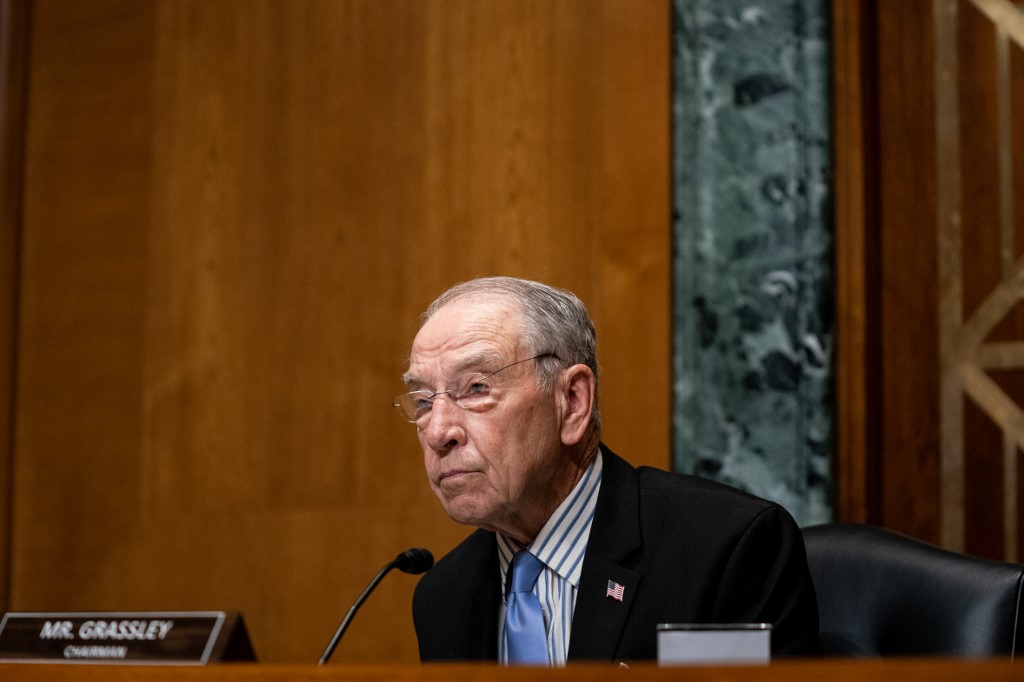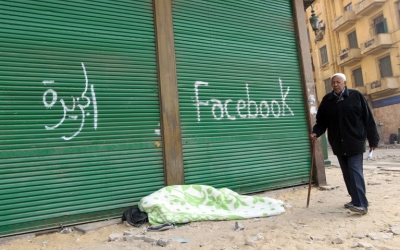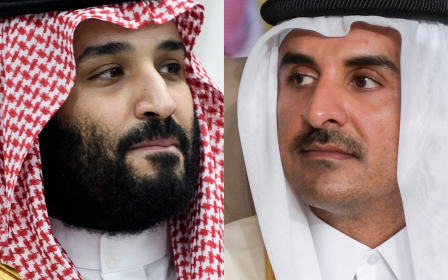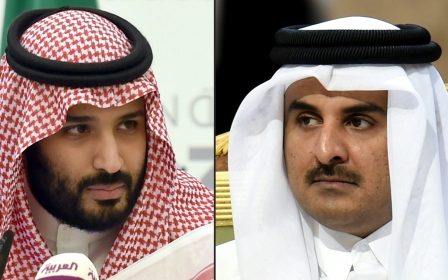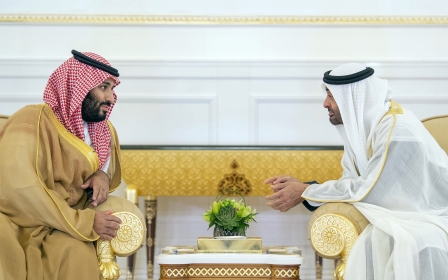Registering Al Jazeera as a foreign agent in the US threatens media freedom
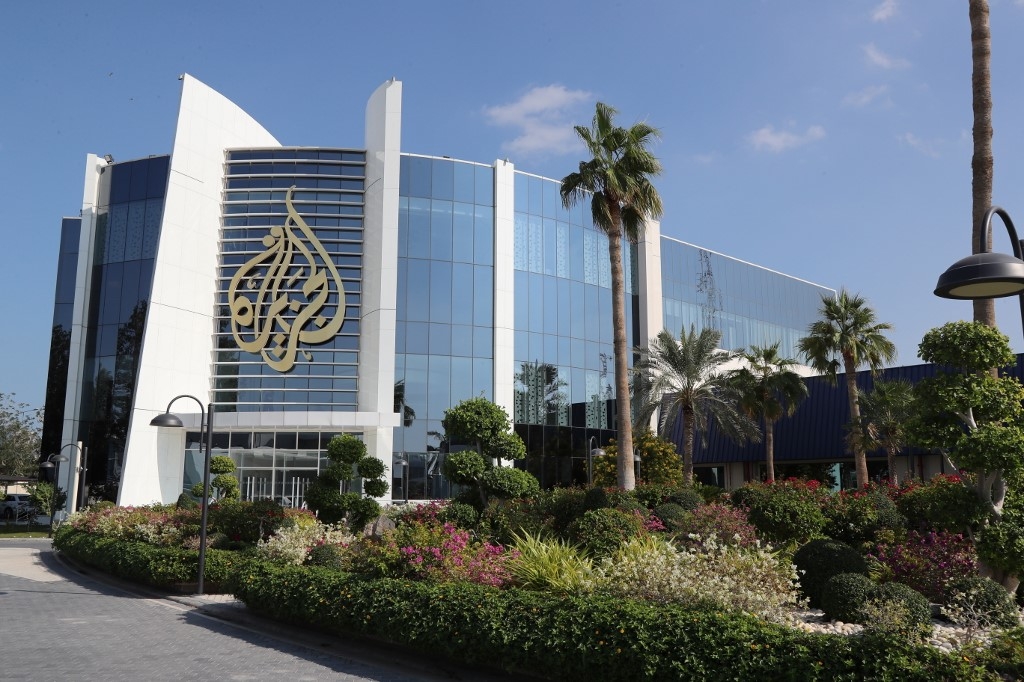
Attacks on media freedom in the US have been on the rise in recent days, with one of the latest attempts targeting Al Jazeera. Members of Congress have been pushing for the Qatar-based news network to be registered as a foreign agent in the US.
On Monday, the US Justice Department (DOJ)declared that the Al Jazeera Media Network is an agent of the Government of Qatar. The DOJ has ordered the network’s US-based social media division, AJ+, to register as a foreign agent.
Siege of Qatar
When Al Jazeera first went live in the 1990s, it was widely viewed as a revolutionary network in the Arab world, giving voice to human rights activists, Muslim Brotherhood members and even Israeli officials.
The network challenged official Arab state narratives. After the Arab Spring first erupted in late 2010, Al Jazeera played a critical role in covering developments on the ground, including the watershed moment when Egyptians cheered the removal of Hosni Mubarak in Tahrir Square in February 2011.
New MEE newsletter: Jerusalem Dispatch
Sign up to get the latest insights and analysis on Israel-Palestine, alongside Turkey Unpacked and other MEE newsletters
At the time, then-US Secretary of State Hillary Clinton called the network a “leader” of a “set of global networks” that were “literally changing people’s minds and attitudes”.
What followed the popular uprisings of 2010-2011 in the Arab world was a counterrevolutionary wave, most vividly illustrated by the Egyptian coup of 2013. The new government in Cairo shut down Al Jazeera, as did Saudi Arabia and the UAE, as they viewed the channel and the Arab Spring as a threat to stability.
The new government in Cairo blamed many of the country’s problems on Doha, and in 2017 joined the blockade of Qatar alongside Riyadh, Abu Dhabi and Manama.
The Saudis and Emiratis have continued to go after the channel, shifting their campaign towards Washington
Even before the blockade began, there were signs of a brewing backlash against Al Jazeera. Less than a year after the Egyptian coup, in March 2014, Bahrain, Saudi Arabia and the UAE withdrew their ambassadors from Qatar, criticising Al Jazeera and other aspects of Doha’s foreign policy. Although the envoys returned within months, the standoff continued.
When the blockade of Qatar was formally launched in 2017, Al Jazeera was a major factor. One of the 13 demands issued by the blockading states was to shut the network down, silencing the views and voices that these governments did not welcome.
A New York Times editorial asserted at the time: “By attacking Al Jazeera, the Saudis and their neighbors are trying to eliminate a voice that could lead citizens to question their rulers.” The Guardian condemned the ultimatum as “part of an assault on free speech to subvert the impact of old and new media in the Arab world. It should be condemned and resisted.” None of this helped the image of the blockading states, nor their agenda of besieging Doha.
Lobbying campaign
Clearly, issues of free speech and expression were key variables in this equation. Yet, even though the blockade failed to pressure Doha into shutting down Al Jazeera, the Saudis and Emiratis have continued to go after the channel, shifting their campaign towards Washington.
In March, 2018, a bipartisan group of lawmakers urged Attorney General Jeff Sessions to enforce the Foreign Agents Registration Act (FARA) with respect to Al Jazeera. The act would place severe restrictions on the network's ability to broadcast freely.
The UAE has hired lobbyists to meet with lawmakers and their staffers, pushing them to demand that Al Jazeera be required to register under FARA. This campaign is yet another attempt to silence the network. Last year, eight lawmakers, led by Iowa Senator Chuck Grassley, asked the US Justice Department to probe whether Al Jazeera should register under FARA.
Another report last year by Reuters provided details about how a group of American hackers who previously worked for US intelligence agencies helped the UAE to spy on several media figures, including the chairman of Al Jazeera, amid the Gulf crisis in 2017.
The push to force Al Jazeera to register as a foreign agent in the US continued last month, as a set of congressional Republicans led by Florida Senator Marco Rubio and New York Representative Lee Zeldin demanded that Al Jazeera be required to register under FARA, arguing that its activities were aligned with the Qatari state’s foreign policy priorities.
Censoring dissent
Al Jazeera's registration under FARA will have major consequences. The media network's activities in the US would have to be curtailed. It could lead to the network being denied access to certain events in the US and perhaps being stripped of press accreditation that currently gives the network access to certain areas of the Capitol building in Washington.
Moreover, once on the FARA list, many scholars, academics and experts who currently appear as guests on Al Jazeera would likely be hesitant to return given the stigma of the network being a "foreign agent".
This would compromise the quality and substance of the network. The first victim would be media freedom, setting a precedent that would embolden a rising global tendency among governments to censor speech that does not necessarily support their geopolitical ambitions.
“Al Jazeera is far from perfect, but for those who hope to see a more democratic Arab world, the network has shown that even news outlets and voices that lack an autocratic stamp of approval can find a place in the public discourse,” journalism professor Philip Seib noted in a 2017 article published by Salon.
“Like anywhere else in the world, Arab society benefits from having a diversity of voices debating the issues of the day. The Middle East has countless problems, but they won’t be resolved by rolling back already limited media freedom.”
As this targeted campaign has reached its objective by forcing Al Jazeera to register via FARA, this would not necessarily affect the channel’s global influence and reach, particularly in the Arab world. But viewers in the US would lose an important source of transparent coverage from the Middle East.
The views expressed in this article belong to the author and do not necessarily reflect the editorial policy of Middle East Eye.
Middle East Eye delivers independent and unrivalled coverage and analysis of the Middle East, North Africa and beyond. To learn more about republishing this content and the associated fees, please fill out this form. More about MEE can be found here.



